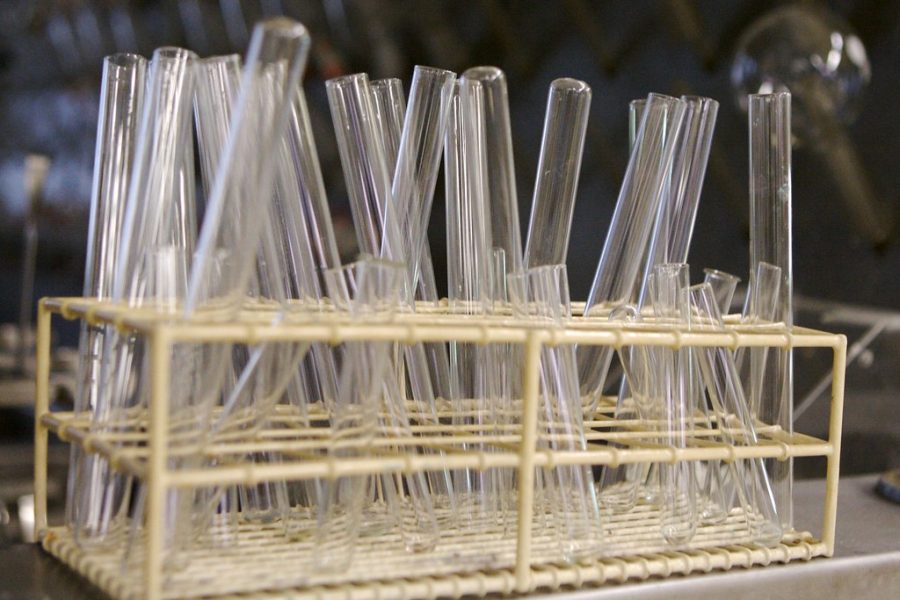Northeastern MOBS Lab researches Coronavirus
Photo courtesy Creative Commons, Proggie
The group has published their findings on the MOBS website, including assessments on the risk of international spreading, the effect of travel restrictions and an early epidemiological analysis of 2019-nCoV.
February 19, 2020
For weeks, the spread of the new Coronavirus, or 2019-nCoV, has instilled fear globally. Last month, the World Health Organization declared the outbreak a public health emergency of international concern, encouraging all countries to be prepared for containment. As more cases are diagnosed, scientists around the world have been searching for answers as to how this disease spreads.
In Northeastern’s Laboratory for Modeling of Biological and Socio-technical Systems, more commonly known as the MOBS Lab, a team of researchers led by Professor Alessandro Vespignani is working to answer this question. Four other Northeastern researchers – Matteo Chinazzi, Jessica Davis, Ana Pastore y Piontti and Xinyue Xiong – are collaborating on this research.
The group has published their findings on the MOBS website, including assessments on the risk of international spreading, the effect of travel restrictions and an early epidemiological analysis of 2019-nCoV.
Jessica Davis, a third-year graduate student studying network science, is currently working on this research. According to Davis, their research focuses on, “understanding how human mobility affects the spreading of a disease.” Critical to the team’s research, Davis said, is knowledge of “flight patterns and commuting behavior between regions.”
The researchers have been using two main tools to author their reports: EpiRisk and the Global Epidemic Mobility Model, or GLEAM, both of which are available to the public online. EpiRisk has helped the MOBS Lab team estimate the risk different countries and regions face of seeing an imported case of 2019-nCoV. The team used this data to create a list of the 25 countries most at risk of importing a case of 2019-nCoV. As of Monday, the United States ranked fifth on that list, which Davis said the team tries to update as frequently as possible.
The team has also used the number of exported cases outside of China to estimate the outbreak size in Wuhan, which Davis said, “is larger than what is reported.”
The researchers used GLEAM to find out how effective travel restrictions are. They found that as of Jan. 23, most Chinese cities had already received infected cases of 2019-nCoV, and thus the quarantine delayed the progression of the epidemic by only about three to five days. In contrast, the researchers found that the quarantine likely reduced the number of international case importations by 80 percent until the end of February.
One important development in the case of the 2019-nCoV epidemic was the finding at the end of January that the virus may be able to spread to from person to person as well as from people who have not shown symptoms of the virus.
Davis was unsurprised by this development, “Finding human to human transmission of the virus is significant, but not unexpected,” she said. “Currently, the virus is relatively contained within China, and the quarantine within Wuhan is one of the largest I’ve ever heard of.”
Since the first case of coronavirus in Boston was confirmed on Feb. 1, universities including Northeastern have published statements about the risk. On Feb. 5, the university said it was “closely monitoring the current 2019 Novel Coronavirus outbreak,” and that university leaders “are in constant communication with the government and public health agencies.
In an email on Feb. 12, the university imposed travel restrictions on Northeastern students, stating, “In accordance with the U.S. State Department, Northeastern University has prohibited all university-sponsored travel from the U.S. to China.” The university also discouraged any personal travel to China.
When asked if this travel restriction will impact summer Dialogue of Civilizations programs, university spokesperson Renata Nyul said those conversations will continue in the coming months.
“The university continues to monitor the developments and university leaders remain in constant communication with government and public health agencies around the world. We’ll continue to share information and updates with our global Northeastern community, including the latest travel guidance. Conversations will continue to assess any impact on global summer programs,” Nyul wrote in an email to The News.
Northeastern also held an event called The Coronavirus: Understanding Risk; Building a Response, to discuss the community’s risk and response to the threat of 2019-nCoV. The discussion included statements from Dr. Vespignani, as well as Larry Madoff, Medical Director at the Bureau of Infectious Diseases at the Massachusetts Department of Public Health; Wendy Parent, professor of law and director of the Center for Health Policy and Law at Northeastern; and Ran Cheng, president of Northeastern’s Chinese Student and Scholar Association. The university also sent out emails providing information about the virus and the risk it poses to students.
Despite the information, some students, such as third-year behavioral neuroscience major Alexa Knudsen, are not entirely confident in the university’s ability to handle a potential outbreak on campus.
“I feel like it’s been in the back of my head, but I’m not genuinely worried that I’ll get sick,” Knudsen said. “That being said, I’ve never been very impressed with the university’s health services. I was impressed with the information they gave us, but I don’t know if I’m confident in the university should people on campus become infected.”
Other students, such as fourth-year political science and international affairs major Noa Dalzell, feel the spread of the disease is out of Northeastern’s hands.
“They have been good about emailing us, but I’m not sure what other approaches they could take,” Dalzell said. “It feels like it’s a larger issue that’s not in the university’s control.”
Davis believes the university has handled the situation appropriately. “At this point, with the risk still low, it is all they can do,” she said.


















